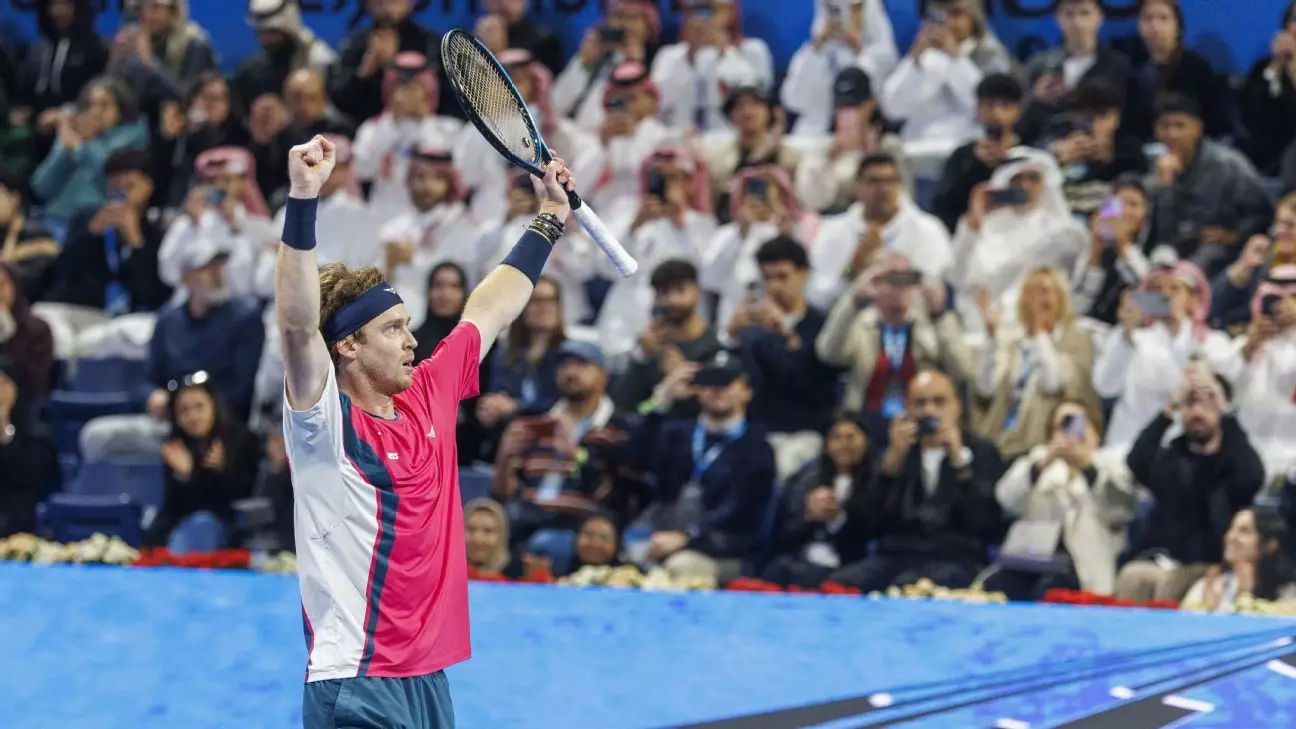Andrey Rublev, currently ranked as the world number nine in men’s tennis, has experienced a significant shift in his mental health, significantly impacting his performance on the court. Through candid conversations with former tennis star Marat Safin, a two-time Grand Slam champion, Rublev has navigated his way through a landscape of emotional challenges that had previously plagued him. His recent victory at the Qatar Open stands as a testament to this newfound mental clarity, where Rublev showcased an ability to compete without the weight of anxiety or stress that had become familiar to him over the years.
Rublev, 27, has long battled with his emotions during matches. This struggle reached a peak during his previous appearance in the Dubai tournament, where he faced a controversy leading to his default from the semifinal match due to alleged inappropriate language directed at a line judge. Such incidents highlighted the turbulence of his mental state at that time, marking a painful chapter in his career. However, Rublev’s resilience shines through as he has actively worked to overcome these setbacks.
The Turning Point
In a reflective moment with The National newspaper, Rublev shared his deep-rooted struggles with self-identity, conveying a sense of losing the direction of his life and career. This sense of aimlessness, which stretched beyond months into years, created a profound existential crisis. He formulated his thoughts dramatically, questioning the very essence and purpose of living. Such sentiments are not uncommon among athletes who face immense pressure to perform; however, Rublev’s experiences are a poignant reminder of the mental toll that competitive sports can exert on an individual.
His journey towards rediscovering purpose initiated when he resumed conversations with Safin last July. Safin, notorious for his on-court volatility, provided Rublev with insights that encouraged self-reflection and gradual improvement. Rublev described this as a pivotal moment, allowing him to reboot his mental framework and consequently inch towards a more positive direction. This narrative emphasizes the importance of mentorship and the sharing of experiences in sports, where even legendary figures face their struggles.
A Neutral Approach: Embracing Equanimity
Rublev’s expression of being in a ‚neutral‘ state is a meaningful evolution. Moving away from the extremes of depression and anxiety, he has reached a level of stability that enables him to navigate professional challenges without the added weight of emotional turmoil. While he openly admits to not being entirely happy or in a perfect place, his acknowledgment of this baseline represents significant progress. Finding peace in neutrality can be an essential strategy for athletes aiming to perform under pressure, as it allows for a release from the relentless pursuit of fluctuating highs and lows.
As he gears up for his upcoming match in Dubai against French qualifier Quentin Halys, Rublev brings with him a renewed outlook on competition. This match serves not just as a professional milestone but as an opportunity for further personal growth. The conversations with Safin and the lessons he has learned along the way highlight the crucial interplay between mental well-being and athletic performance, underscoring that a robust psychological foundation is as essential as technical skill in achieving success in sports.
Andrey Rublev’s journey offers profound insights into the complexities of mental health in athletics. His narrative encourages not only fellow athletes to address such crucial issues but also serves as a reminder that vulnerability can pave the way for resilience and triumph.


Napsat komentář